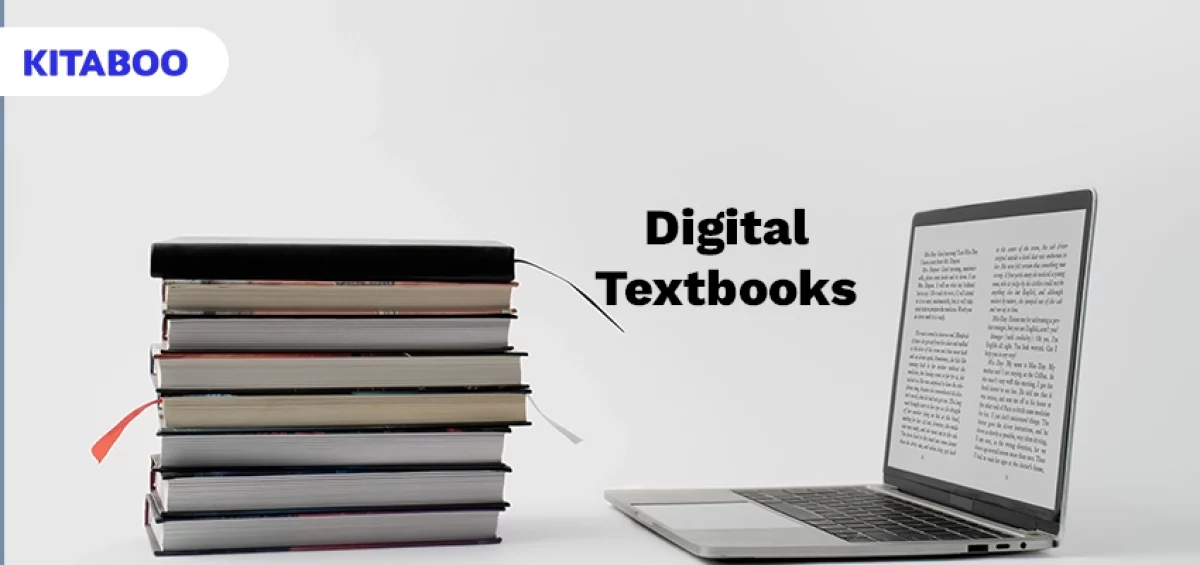In a matter of a few years, the higher education experience has undergone a dramatic shift. Gone are the days when students were required to lug around heavy books that became symbolic burdens, both physically and financially. Digital textbooks have brought about a new era in higher education, changing the way students learn and educators teach.
In this blog, we’ll be discussing higher education textbook trends of 2024, as well as exploring the impact of digital textbooks and open educational resources (OER) on higher education and the future they promise.
Table of Contents
I. The Impact of Digital Textbooks
II. Open Educational Resources: Transforming Higher Education
III. Turning Educational Challenges Into Opportunities
IV. The Future of Higher Education Textbooks
V. Conclusion
The Impact of Digital Textbooks
Traditional textbooks in higher education have become marred by sky-high prices, endless edition updates, and limited accessibility. However, the steadily rising adoption of digital textbooks offers a more affordable and flexible alternative.
With the mainstream acceptance of laptops, tablets, and smartphones, students now have the convenience of accessing their course materials anytime, anywhere.
Deeper Learning Experiences
Digital textbooks come in various formats, from PDFs to interactive multimedia, and can incorporate features such as videos, quizzes, and hyperlinks to enrich the educational experience. The ability to search, highlight, and annotate text makes the learning process more convenient and engaging, allowing for better familiarity with the material.
Digital platforms such as KITABOO allow educators to create dynamic textbooks filled to the brim with interactive content, ensuring a more engaging and immersive learning experience.
Lower Costs
One significant advantage of digital textbooks is their potential as cost saving alternatives. According to the Education Data Initiative, the cost of an average college textbook was $105.37 in 2022, which can become a significant financial burden for students. The average eBook was found to be 31.9% less costly compared to its traditional counterpart.
This affordability also promotes equitable access to education for low-income and marginalized communities. Platforms such as KITABOO allow educators and publishers to establish their own pricing models, ensuring that education remains unrestricted in the face of rising costs.
Sustainability and Scalability
Traditional textbooks have a lot of variables attached like paper, ink, and shipping, whereas digital textbooks have minimal environmental impact. By reducing paper consumption and carbon emissions associated with transportation, digital textbooks contribute to sustainability efforts within higher education institutions.
Digital textbooks can also be easily updated and revised to ensure that students have access to the most current information. This dynamic nature of digital content aligns with the rapid changes that most academic fields are going through.
Open Educational Resources (OER): Transforming Higher Ed
Open Educational Resources (OER) encompass a vast collection of freely accessible teaching and learning materials, including textbooks, lecture notes, and multimedia resources.
OERs democratize education by removing costly barriers to entry and making quality content available to all students.
Collaboration and Innovation
Open Educational Resources also promote collaboration and innovation in teaching. Educators can customize and remix OERs to suit their instructional objectives and refine content to meet the needs of their students. OER’s open licensing allows for continuous improvement and adaptation, encouraging a culture of collective knowledge creation.
Inclusive Learning
Open licensing enables users to retain, reuse, revise, and redistribute educational materials freely. This is in stark contrast with traditional copyright restrictions imposed by commercial publishers, which limit educators’ ability to modify or share content.
Open licensing frameworks such as Creative Commons allow educators to adapt learning materials to diverse cultural and linguistic contexts, fostering inclusive and culturally responsive teaching practices.
Active Learning
OERs offer advantages that enhance student engagement and learning outcomes. Many OER platforms feature interactive elements such as simulations, games, and activities, which promote active learning and critical thinking. OERs encourage interdisciplinary exploration and cross-cultural exchange by facilitating the exchange of educational resources across institutions and regions.
This interconnectedness enriches the educational experience and exposes students to diverse perspectives and worldviews.
Turning Educational Challenges Into Opportunities
Despite the benefits of digital textbooks and OER, certain challenges act as roadblocks to their widespread adoption. Skepticism among faculty, concerns about quality control, and technological barriers hinder progress in the global implementation of these resources. However, these challenges can also be thought of as opportunities for innovation within the field of higher education.
Faculty Development
Institutions can invest in faculty development initiatives to promote digital literacy and innovation. Partnerships between universities, libraries, and edtech organizations can facilitate the creation of high-quality OERs.
Efforts at the policy level can promote the adoption of open licensing frameworks and incentivize faculty to embrace digital textbooks and OERs.
Encouraging a Culture of Digital Learning
By developing a culture of experimentation and continuous improvement, institutions can create an environment open to innovations in teaching and learning. This may involve providing incentives for faculty to adopt digital textbooks and OER, such as funding for course redesigns or recognition for open educational practices.
Institutions can negotiate favorable licensing agreements with publishers and invest in infrastructure to facilitate the adoption and integration of digital resources into the curriculum.
The Future of Higher Education Textbooks
As we look into the future of higher education textbooks, digitalization and open access will continue to shape the landscape. The COVID-19 pandemic accelerated the shift to online learning and highlighted the importance of digital resources for continued resilience. In response to this shift, educators are reimagining the role of textbooks as dynamic, interactive tools that enhance the learning experience rather than restrict it.
The momentum behind open education movements and the increasing availability of digital infrastructure serve as initiators for the widespread adoption of digital textbooks and OER. With the right policies, investments, and collaborative efforts, institutions can build a more equitable and sustainable future for higher education.
Conclusion
The higher education textbook trends of 2024 reflect the ways in which digital textbooks and OERs are revolutionizing the way students learn and educators teach, offering accessibility, affordability, and flexibility not possible through traditional textbooks.
By harnessing the power of technology and collaboration, educators can pave the way for a brighter future in higher education.
Education publishers and providers can use dynamic digital textbook platforms like KITABOO to create, publish, distribute, and market their works to their audiences worldwide.
Connect with us to start a conversation.
Discover How An Ebook Conversion, Publishing & Distribution Platform Can Help You
Kitaboo is a cloud-based content platform to create-publish & securely distribute interactive mobile-ready ebooks.
You May Also Like








